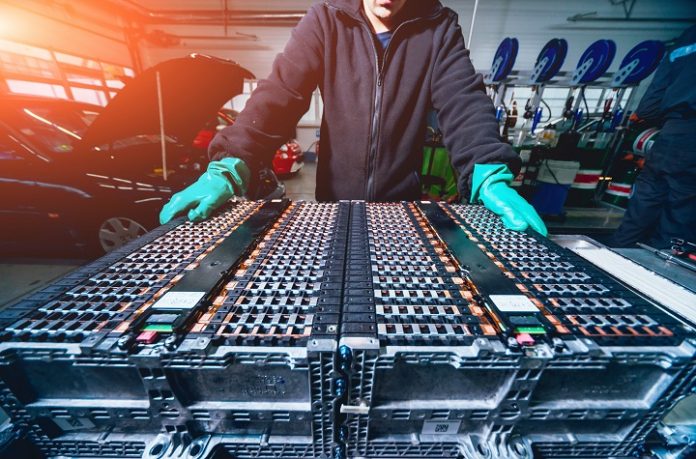High-capacity battery packs and fast charging for hybrid and electric vehicles are rapidly advancing with demand ever-increasing for safe, efficient charging that operates quickly, with the minimum of disruption. One of the biggest areas of concern for battery designers is the issue of heat impacting on battery performance, particularly as drivers crossing over from traditional fuel vehicles to electric will expect no compromise in performance from their new electric/hybrid vehicle.
Implementing the most effective thermal management solutions can significantly contribute to improving battery performance, safety, reliability and, ultimately, increasing the lifetime of the battery. Electrolube have successfully implemented new resin solutions for EV customers that have proven highly successful in solving their heat, performance and protection issues.
For issues with securing the battery at the base and ensuring effective heat dissipation away from the battery, Electrolube’s SC4003 is a thixotropic two-part silicone potting and encapsulating resin, initially designed for the Indian market, which was primarily developed for the protection of LED Drivers. However, its properties make it ideally suited for battery protection.
The Thermal Conductivity of SC4003 is 1W/mK, which is highest in the industry for a silicone resin. It has excellent high-temperature properties, suitable for use in applications where the operating temperature will be up to 200°C, while its flexibility allows for temperature cycling. Its thixotropic nature and good flow characteristics make it an excellent choice for extremely tight spaces or difficult geometries. The process simply ensures that 30% of the height of the battery will be filled with resin.
Another key product for battery protection includes the thermal gap filler – GF400. Electrolube’s thermal gap filler, GF400, is a highly effective heat transfer solution, providing excellent thermal performance at 4.0 W/m.K. The two-part, liquid silicone-based filler is a thick liquid that can easily be applied around different shaped housings with low stress on components.
Following application, the gap filler can be cured at room temperature or accelerated with heat, with a wide operating temperature range between -50 to +200°C. The low viscosity of GF400 enables easier dispensing and the following curing, GF400 forms a low modulus elastomer, preventing the pump-out phenomenon of the thermal interface layer from the bond line.
To seal the battery pack, Electrolube has the ER6001 two-part epoxy encapsulation resin, which has also been developed for the Indian EV market. The resin has excellent chemical resistance and a wide operating temperature range, performing exceptionally at high temperatures. ER6001 is suitable for a wide variety of applications within the automotive electronics industry for the protection of EV battery packs.
To achieve prolonged battery life and higher efficiency, Electrolube’s Thermally Conductive Epoxy Potting Compound, ER2221, is a highly thermally conductive resin with low viscosity, ideal for potting cells within electric vehicle batteries. The UL94 V-0 approved epoxy potting compound can withstand long durations at high temperatures and can assist with securing cells in place whilst dissipating the heat away to the surroundings.
The resin effectively creates a protective shield around the battery and enables excellent adhesion, high-temperature resistance, high thermal conductivity and retention of characteristics throughout the thermal cycling process. ER2221 is coloured black with an operating temperature of 150°C and an advanced thermal conductivity value, in comparison to other encapsulants, of 1.20W/m.K.
Ron Jakeman, Electrolube’s Managing Director, comments, “Thermal management is a pre-requisite for efficient battery operation in electric and hybrid vehicles, particularly with all the various global climatic conditions and hostile environments that vehicles are subjected to. Batteries produce vast amounts of heat during operation and whilst charging, and we are delighted to introduce our Thermal Management and Encapsulation Resin Solutions to the battery industry to improve their performance and lifetime. As an established supplier to the automotive industry, we have seen a surge in demand from many battery application customers and Electrolube is increasingly becoming the go-to resource for specialist electro-chemical solutions that solve customers’ manufacturing problems for EV and hybrid batteries that helps them bring high-quality, reliable batteries to market faster. We are looking forward to learning about customer requirements and advising them on the efficient solutions we offer.”
For further information, www.electrolube.com

